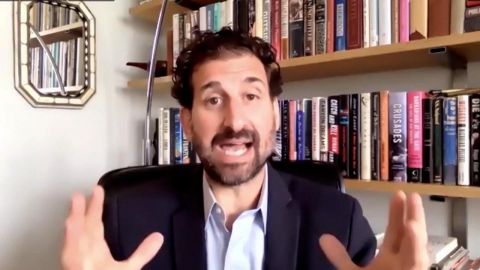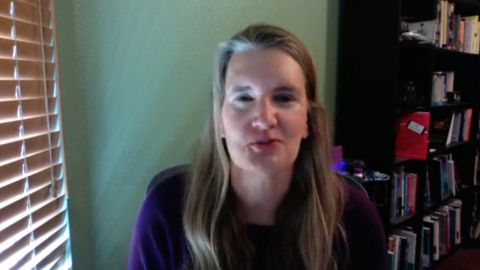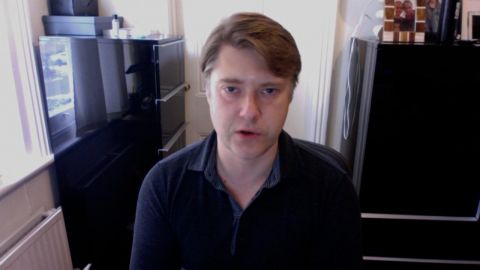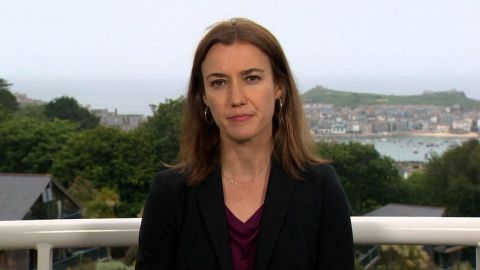Read Transcript EXPAND
AMANDA SLOAT, SENIOR DIRECTOR FOR EUROPE, U.S. NATIONAL SECURITY COUNCIL: Well, certainly, the one thing that we have realized during this pandemic is that pandemics don’t represent borders. And we in the United States are not going to be fully safe from the pandemic until we are able to vaccinate everybody around the world. The president campaigned on a desire to ramp up the vaccination effort in the United States. We are now in a significantly stronger position than we were when he took office in January. And it really is because of those domestic investments that the president made that we’re now in a position to be able to share the 500 million vaccines that the president announced yesterday, and also to rally partners here at the G7 and, frankly, other international partners, to stand up in and do more as well. The president’s announcement and our vaccine is going to be targeting 92 of those countries. And it’s something that we feel well-positioned to do and welcome additional contributions from other countries as well.
GOLODRYGA: We should say, though, more than 600 million doses have been distributed by China around the world, particularly to Latin America as well, in that time. I’m curious, is there a sense or a commitment to continue investigating the origins of COVID, in particular whether or not it did in fact come from a lab leak, as opposed to naturally from an animal to human?
SLOAT: This is something I think that the administration is continuing to look at, in partnership with our other allies, continued conversations with the World Health Organization, to understand the origins of the pandemic. And at the same time, we need to be continuing to work with our international partners to ensure that we have the global health security mechanisms in place to ensure that we have the resilience to be able to deal with future pandemics.
GOLODRYGA: It’s interesting. If you look back to President Trump’s first visit to the G7 meeting, that is when Angela Merkel, the German chancellor, said famously that we are on our own in terms of Europe and having to lead their own fate going forward, following the America first policy from President Trump. Obviously, Donald — President Biden delivering a different message, but many years have gone by now. And while he’s focused on uniting democracies vs. rising autocracies — authorities — authoritarian leaders — excuse me — in particular, China, other European countries don’t necessarily see it that way, Germany and others. What is your take on that and what needs to be done to help persuade them that that is, in fact the case?
SLOAT: I think we are going to see a strong message of unity coming out of the G7 this weekend. After this, the president has to Brussels, where he’s going to be meeting with our NATO allies. It’ll be the first time that there’s a full summit since 2018. We’re expecting a strong communique to be coming out of that. The president will then be meeting with the E.U. leadership. And you mentioned Chancellor Merkel. We announced earlier today that the president has invited her to come to Washington in July.
About This Episode EXPAND
Businesses are welcoming employees back to the office.
LEARN MORE



